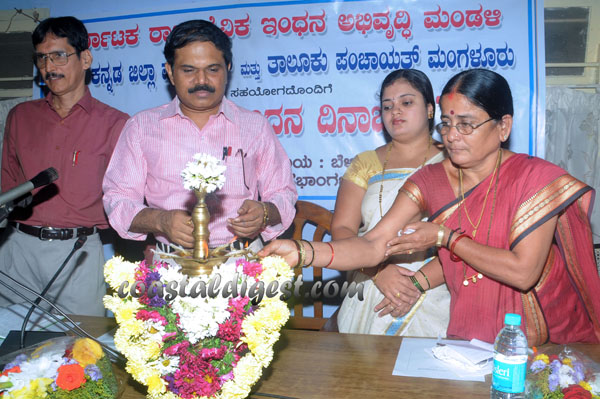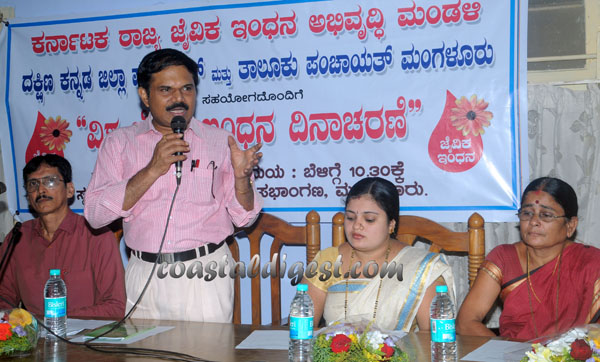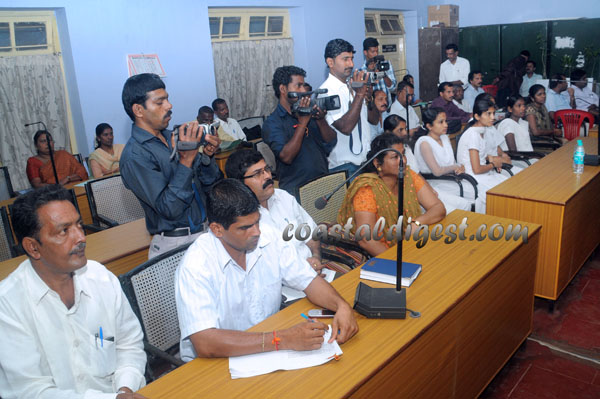Mangalore, August 10: Karnataka State Bio-fuel Development Board (KSBDB) in association with Dakshina Kannada Zilla Panchayat and Taluk Panchayat, Mangalore, celebrated 'World Bio-fuel Day' on August 10 at Taluk Panchayat Auditorium, Mangalore.
Prof. Airody Vasudeva Adhikari, Coordinator of Information and Documentation Centre, KSBDB, NIT-K, Suratkal, spoke on the occasion and briefed the gathering on the production of bio-fuel from oil seeds of Neem, Honge, Simaruba, Jatropha etc.
Speaking on the advantages of bio-fuel, he said that the bio-diesel generated from non-edible oils and waste fatty matter could be used as an alternate fuel. One litre of bio-diesel would cost Rs. 48 which could be used as fuel in vehicles, water pumps and generators. The usage of bio-fuel also contributes towards environment protection, he said.
Speaking on the current scenario, he said that 70 per-cent of the nation's wealth was spent on importing petroleum product from foreign countries. By becoming self-reliant in acquiring fuel to run machines and vehicles, Karnataka can contribute in reducing the import bill of oil for the country. Bio-fuel programmes in the state can increase rural income and women empowerment by generating rural employment. Information of cultivation of oil-seed crops, and generation of bio-fuel should reach the people at grassroots level, he said.
Prof. Vasudeva said that NIT-K has planned to inaugurate a Seed Collection Centre in the coming days, where seeds could be collected from farmers and growers. Funds will be required from Central Government to improve the centre so that further research could be conducted on bio-fuel. Centres should be set up at district, taluk and village levels so that the farmers are benefited by obtaining help from the centres, he said.
Janardhan Gowda, President, Social Justice Standing Committee, said that the district of Dakshina Kannada had worsened in the matter of preservation of the environment. In such a situation, the method of producing bio-fuel from oil seeds is a contribution to the land, which should be implemented on a large scale, he said.
“We should try our best to preserve the environment and ask ourselves how much we could contribute to it,” he added.
In his inaugural address, K.N. Vijayaprakash, CEO of Zilla Panchayat, said that the government of Karnataka had been most supportive in the research of bio-fuel. “We need commitment to apply and adopt the bio-fuel in our state. It needs to be applied in our homes and our daily sphere of lives as well,” he said.
Bhavya Gangadhara Poojary, President of Taluk Panchayat, Mangalore, presided over the programme. Dhanalakshmi Janardhana, Vice President of Zilla Panchayat and Vijayalaxmi Shetty, Vice President of Taluk Panchayat, were present on the occasion.








Comments
Add new comment